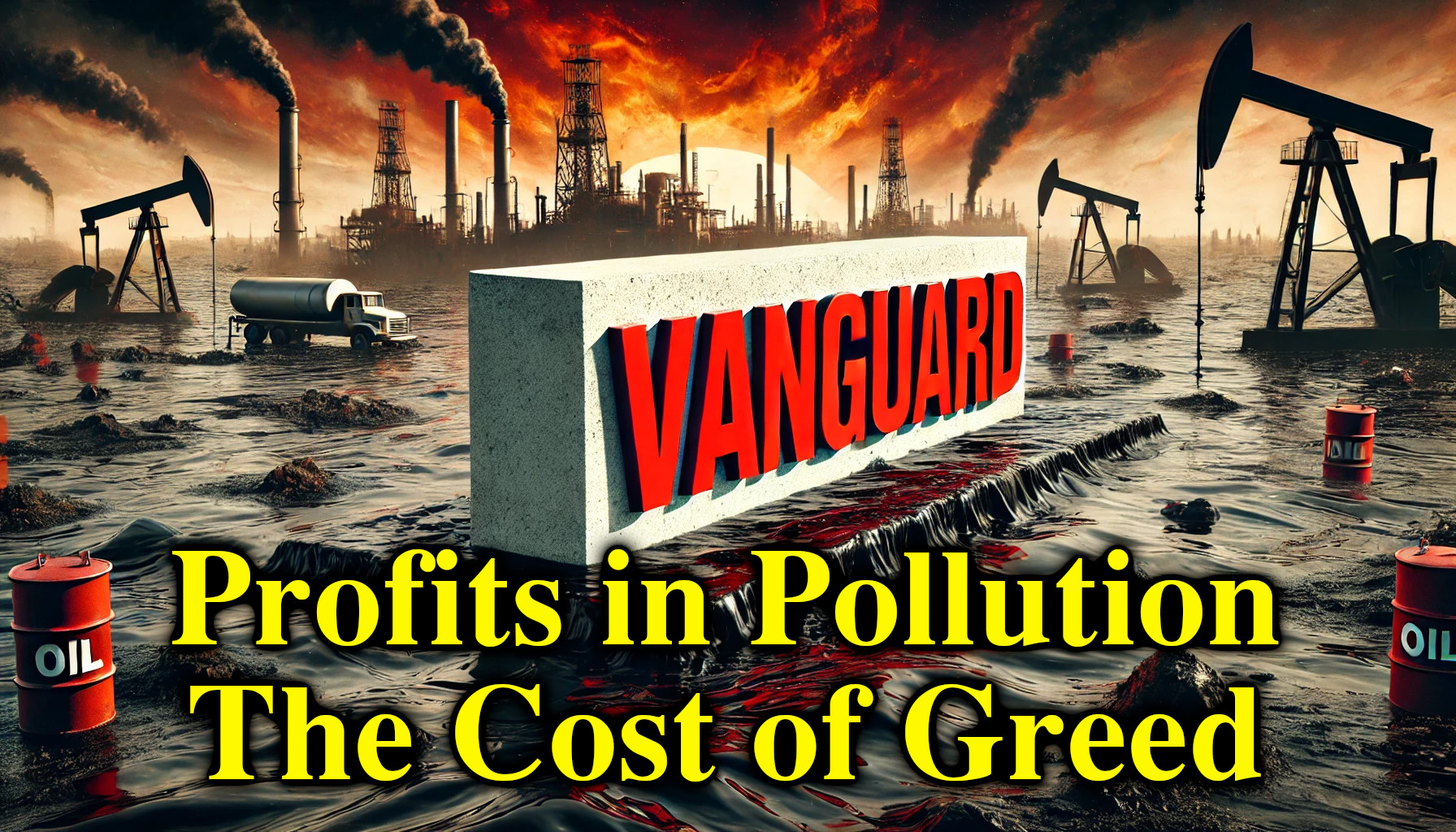
 Shell Loses Landmark Case Because Apparently, Destroying Nigerian Communities for Profit Isn’t Enough—They Tried to Weasel Out of Responsibility Too
Shell Loses Landmark Case Because Apparently, Destroying Nigerian Communities for Profit Isn’t Enough—They Tried to Weasel Out of Responsibility Too
Posted by John Donovan: 12 Oct 2024
In a stunning twist that absolutely no one saw coming, oil behemoth Shell, the model of corporate ethics (wink), has lost yet another court battle. This time, the UK Court of Appeal has handed down a major ruling in favor of two Nigerian communities, the Bille and Ogale, whose land, water, and livelihoods have been systematically obliterated by oil pollution—allegedly caused by none other than Shell’s Nigerian subsidiary, SPDC.
The Bille and Ogale communities have been living in an environmental nightmare for years, courtesy of around 100 oil spills from Shell’s crumbling infrastructure. These spills have rendered their land uninhabitable, poisoned their water, and left them unable to farm or fish. But Shell—because why accept responsibility when you can stall, deflect, and confuse—managed to string this case out for ten years, while thousands of people suffered, and many even died waiting for justice. read more
Like this:
Like Loading...
This website and sisters
royaldutchshellgroup.com,
shellnazihistory.com,
royaldutchshell.website,
johndonovan.website, and
shellnews.net,
are owned by
John Donovan. There is also a
Wikipedia segment.
 21 Oct 2024
21 Oct 2024
 21 Oct 2024
21 Oct 2024 19 Oct 2024
19 Oct 2024 17 Oct 2024
17 Oct 2024 17 Oct 2024
17 Oct 2024

 Tantrum Over Dutch Gas Field Closure, Because Destroying Homes and Causing Earthquakes Just Isn’t Profitable Enough
Tantrum Over Dutch Gas Field Closure, Because Destroying Homes and Causing Earthquakes Just Isn’t Profitable Enough
 8 Oct 2024
8 Oct 2024
 Ah, Shell and ExxonMobil—the undisputed kings of environmental devastation—are back at it again! This time, they’re teaming up with Petrobras, Brazil’s state-run oil giant, to grace Africa with their toxic touch. Yes, because what Africa really needs right now is more foreign oil companies swooping in to exploit its natural resources. It’s like watching vultures circle a dying animal, except the animal is the entire planet.
Ah, Shell and ExxonMobil—the undisputed kings of environmental devastation—are back at it again! This time, they’re teaming up with Petrobras, Brazil’s state-run oil giant, to grace Africa with their toxic touch. Yes, because what Africa really needs right now is more foreign oil companies swooping in to exploit its natural resources. It’s like watching vultures circle a dying animal, except the animal is the entire planet. Oh look, folks! Shell, the notorious planet-wrecker and fossil fuel fanatic, is now trying to rebrand itself as some kind of eco-warrior. In a move so dripping with irony it might actually short-circuit their new chargers, Shell is planning to turn its former Scottish headquarters into an electric vehicle charging hub. Yes, you read that right. The same company that spent decades pumping oil, gas, and toxic waste into the environment now wants to be your go-to for “clean” energy.
Oh look, folks! Shell, the notorious planet-wrecker and fossil fuel fanatic, is now trying to rebrand itself as some kind of eco-warrior. In a move so dripping with irony it might actually short-circuit their new chargers, Shell is planning to turn its former Scottish headquarters into an electric vehicle charging hub. Yes, you read that right. The same company that spent decades pumping oil, gas, and toxic waste into the environment now wants to be your go-to for “clean” energy.
 Ah, Shell. The same company that has perfected the art of environmental destruction, employee exploitation, and moral bankruptcy now wants us all to get excited about its shiny new biofuels project in Brazil. Because, apparently, nothing says “we care about the planet” like an oil giant boasting about squeezing a few more drops of ethanol out of sugarcane while continuing to plunder the earth’s resources.
Ah, Shell. The same company that has perfected the art of environmental destruction, employee exploitation, and moral bankruptcy now wants us all to get excited about its shiny new biofuels project in Brazil. Because, apparently, nothing says “we care about the planet” like an oil giant boasting about squeezing a few more drops of ethanol out of sugarcane while continuing to plunder the earth’s resources.
 EBOOK TITLE: “SIR HENRI DETERDING AND THE NAZI HISTORY OF ROYAL DUTCH SHELL” – AVAILABLE ON AMAZON
EBOOK TITLE: “SIR HENRI DETERDING AND THE NAZI HISTORY OF ROYAL DUTCH SHELL” – AVAILABLE ON AMAZON EBOOK TITLE: “JOHN DONOVAN, SHELL’S NIGHTMARE: MY EPIC FEUD WITH THE UNSCRUPULOUS OIL GIANT ROYAL DUTCH SHELL” – AVAILABLE ON AMAZON.
EBOOK TITLE: “JOHN DONOVAN, SHELL’S NIGHTMARE: MY EPIC FEUD WITH THE UNSCRUPULOUS OIL GIANT ROYAL DUTCH SHELL” – AVAILABLE ON AMAZON. EBOOK TITLE: “TOXIC FACTS ABOUT SHELL REMOVED FROM WIKIPEDIA: HOW SHELL BECAME THE MOST HATED BRAND IN THE WORLD” – AVAILABLE ON AMAZON.
EBOOK TITLE: “TOXIC FACTS ABOUT SHELL REMOVED FROM WIKIPEDIA: HOW SHELL BECAME THE MOST HATED BRAND IN THE WORLD” – AVAILABLE ON AMAZON.





















